Despite his frequent vocal critiques and scathing dissent regarding a landmark Supreme Court decision in favor of marriage equality in June, Justice Antonin Scalia told a group gathered at Tufts University in Medford, Mass., on Thursday that he's waiting for the other shoe to drop to tell us how he really feels about same-sex marriage.
"I haven't expressed my view about gay marriage," Scalia said, according to Reuters. He also noted that the U.S. v. Windsor case on which the court ruled in June dealt with just a single section of the 1996 federal Defense of Marriage Act, not any legal right to same-sex marriage in itself.
"The issue in the DOMA case was not whether the Constitution requires states to allow gay marriage," explained Scalia. "That was not the question at all. The question is whether Congress can define marriage in all of the statutes that Congress enacted to mean only marriage between a man and a woman. ... I'm waiting for the other shoe to drop [on this issue]."
Scalia used the same phrase in his harshly written dissent in the Windsor case, where the majority of the court ruled that the section of DOMA that prohibited federal agencies from recognizing legal same-sex marriages was unconstitutional.
"My guess is that the majority, while reluctant to suggest that defining the meaning of 'marriage' in federal statutes is unsupported by any of the Federal Government's enumerated powers, nonetheless needs some rhetorical basis to support its pretense that today's prohibition of laws excluding same-sex marriage is confined to the Federal Government (leaving the second, state-law shoe to be dropped later, maybe next Term)," Scalia wrote in June. "But I am only guessing."
Scalia's dissent in the DOMA case maintained his strict originalist interpretation of the Constitution, meaning he believes the document is static and should be interpreted only as the founders originally intended it, not through a modern cultural lens. In Windsor, Scalia argued that the Constitution neither forbade nor expressly permitted same-sex marriage, the same way it "neither requires nor forbids us to approve of no-fault divorce, polygamy, or the consumption of alcohol."
And while he didn't outright state his political and judicial leanings on marriage equality, the conservative justice made his opinion pretty clear with this passage in his Windsor dissent:
"In the majority's judgment, any resistance to its holding is beyond the pale of reasoned disagreement," wrote Scalia. "To question its high-handed invalidation of a presumptively valid statute is to act (the majority is sure) with the purpose to 'disparage,' 'injure,' 'degrade,' 'demean,' and 'humiliate' our fellow human beings, our fellow citizens, who are homosexual. All that, simply for supporting an Act that did no more than codify an aspect of marriage that had been unquestioned in our society for most of its existence -- indeed, had been unquestioned in virtually all societies for virtually all of human history. It is one thing for a society to elect change; it is another for a court of law to impose change by adjudging those who oppose it hostes humani generis, enemies of the human race."
In the other marriage equality case the court decided in June, however, Scalia actually joined both conservative and liberal justices in a ruling that had the effect of bringing marriage equality back to California -- but it hinged on the question of who had legal standing to bring the case. He agreed that the sponsors of Proposition 8, the state constitutional amendment that ended same-sex marriage in California for a time, did not have standing to appeal a lower court decision striking Prop. 8 down.
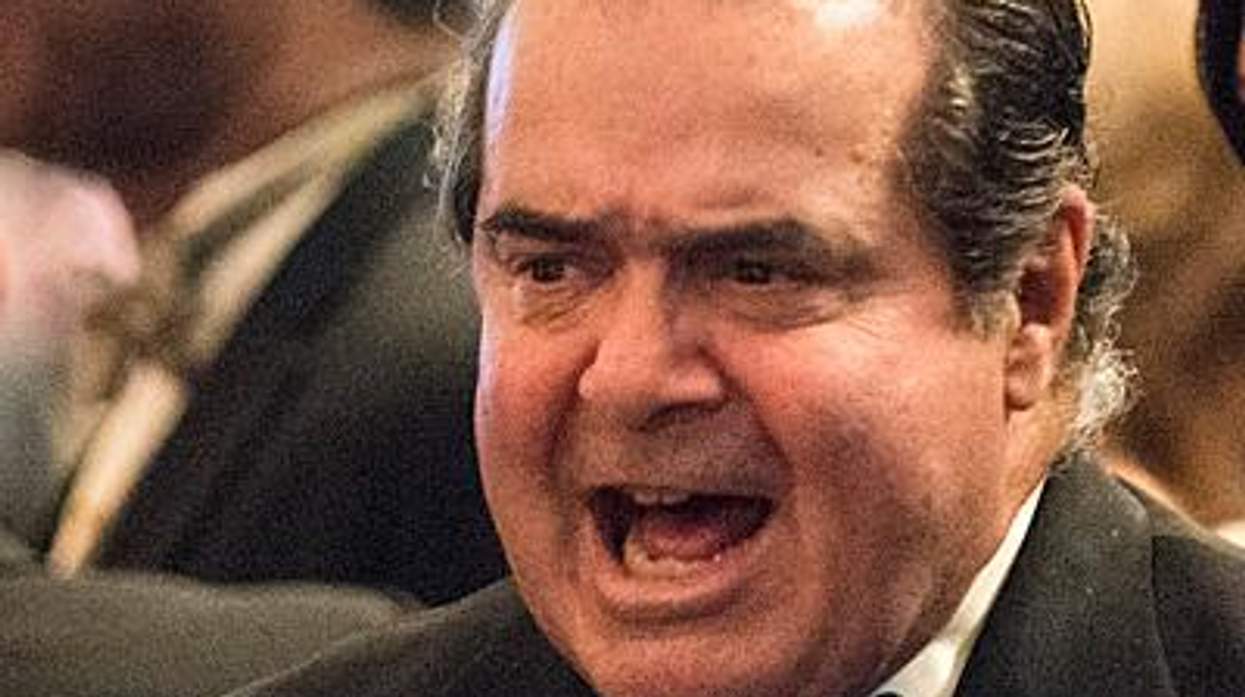

































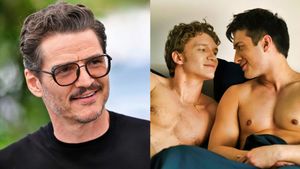









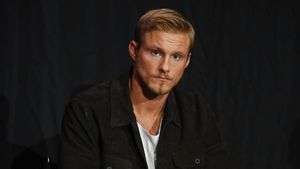















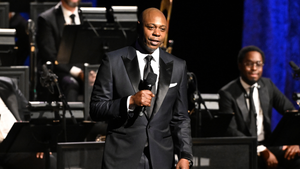



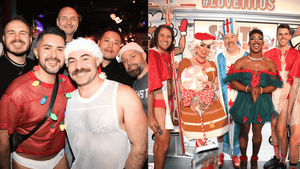

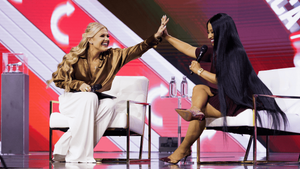

Charlie Kirk DID say stoning gay people was the 'perfect law' — and these other heinous quotes